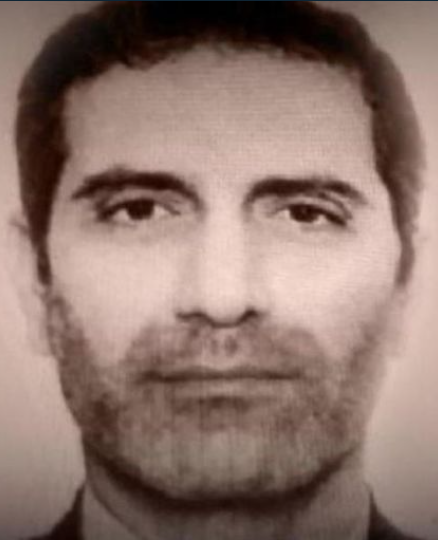July 29, 2022

The government of Belgium has submitted to Parliament a bill that would require Belgium to exchange prisoners with Iran. The proposal stirred up a fury in Belgium because it would require Belgium to send back to Iran an Iranian diplomat, Asadollah Asadi, 50, who was just recently convicted of plotting a terrorist bombing and sentenced to 20 years in prison.
After much heated debate, centering on whether Belgium was caving to Iranian blackmail, Parliament approved the treaty with Iran on a 79-41 vote with 11 abstentions.
The Iranian coercion became clear just days before the vote when a Belgian family revealed that Olivier Vandecasteele, 41, a Belgian aid worker, had been arrested in February on charges of espionage. The Belgian government signed the prisoner exchange agreement with Iran March 11, but did not tell Parliament about Vandecasteele until after his family revealed his imprisonment.
That made the debate in Parliament especially testy, with many members saying the agreement put all Belgians living in Iran in danger. The opposition to the treaty was led by the New Flemish Alliance, a rightwing nationalist party, which is the largest party in Parliament but leads the opposition. One member of the New Flemish Alliance is Iranian-born Darya Safai, who vocally opposed the treaty with the Islamic Republic.
Belgium’s justice minister, Vincent Van Quickenborne, defended the treaty. “Iran is a rogue state, but we don’t choose whom we talk to,” he said, emphasizing that winning freedom for Vandecasteele was the government’s “priority.” He also said that from the very day of Assadi’s arrest four years ago “we have felt pressure from Iran, and the security situation of our interests [in Iran] has deteriorated systematically”—suggesting that Iran did more to threaten Belgium than just arrest Vandecasteele.
Safari and other members of the opposition said the government was giving into blackmail and putting more Belgians at risk.
Prime Minister Alexander De Croo said the government had little choice. “Belgium does not abandon its citizens,” he said. “What do you tell his family—that we are going to let him rot in jail?”
But Safai went to court, and just two days after approval of the treaty a Brussels court issued an order provisionally prohibiting the government from sending Assadi back to Iran. The order means that if the government wishes to send Assadi back home, it will first have to go to the court and seek its approval after a hearing in which both sides will be able to have their say.
The prisoner exchange agreement is similar to those Iran has negotiated with several countries, under which convicted Iranian criminals jailed in a foreign country can be sent back to Iran to serve their terms there while Iran sends any criminals it holds from the other country back home to serve their sentences there. The agreements allow Iran to amnesty any Iranian prisoner sent to it.
Safai told Iran International that the bill does not exclude those in prison for terrorist activities and will therefore pave the way for the release of Iranians involved in terrorism in Belgium in the future. “My life and that of my husband, children and so many others are in danger,” Safai said.
“Asadi will not remain in prison even for one day [in Iran],” Safai said, adding that Iranian authorities will welcome him home with flower garlands when he gets back.
Safai, 47, was elected to the Belgian Parliament in 2019. She is dentist who fled Iran with her husband while they were awaiting trials for their roles in the 1999 protests. Belgium gave them asylum in 2000. After she fled Iran, she was sentenced to two years in prison by Iran.
At Assadi’s trial, prosecutors said he brought about a pound of the explosive triacetone triperoxide and a detonator from Tehran to Vienna, where he served as an accredited diplomat, then drove with it to Luxembourg, where he turned it over at a Pizza Hut June 30, 2018, to an Iranian couple who held asylum in Belgium.
The couple were arrested in France as they drove with the bomb to a rally near Paris of the Mojahedin-e Khalq. Assadi was arrested at a gasoline station in Germany as he was driving back to Austria. Iran constantly tells the Iranian public that the Europeans violated Assadi’s diplomatic immunity. But Assadi had diplomatic immunity in Austria, the country to which he was assigned, not in Germany, Belgium or Luxembourg.
Assadi was convicted of attempted murder and involvement in terrorism.
The Belgian government has negotiated similar prisoner exchange treaties with India and the United Arab Emirates, which were also submitted to Parliament along with the treaty with Iran.